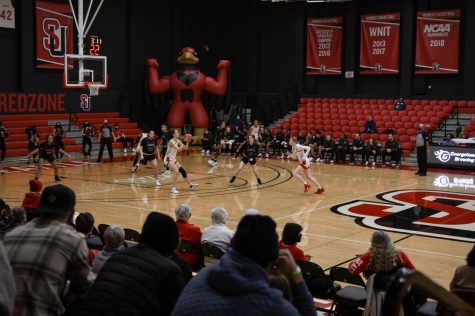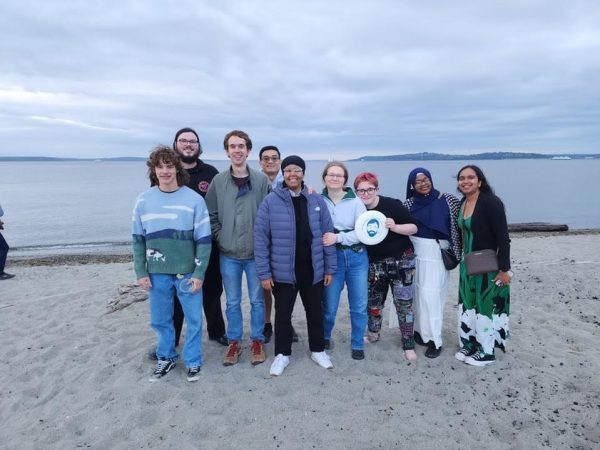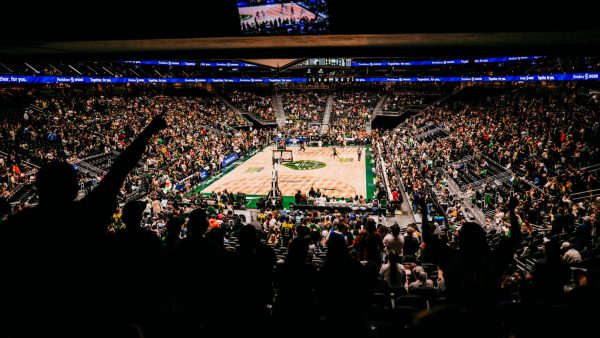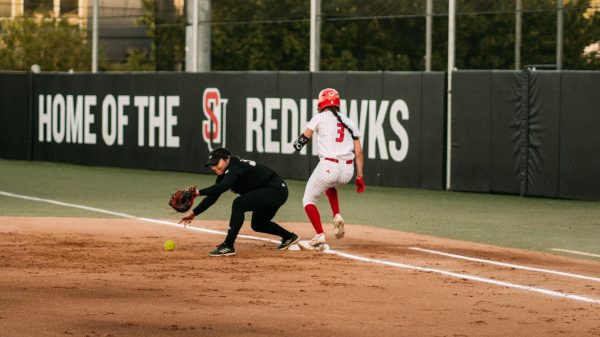Another NBA Season Begins Without a Seattle Franchise
The National Basketball Association (NBA) has served as the world’s premier showcase for professional basketball since its inception 76 years ago. In recent years, however, basketball’s global appeal has increased to new levels. But for the 15th straight season, Seattle will not be a part of the show.
Recently, international stars like Slovenian guard Luka Dončić of the Dallas Mavericks and Serbian center Nikola Jokić of the Denver Nuggets have taken the league by storm with their fundamental play which can lessen the emphasis of athleticism in the sport. When combining that dynamic with the fact that the NBA is as team-based as it has ever been, the league is set up for an unpredictable season.
The competition is bolstered especially this season by the return of some of the league’s brightest stars, like Denver’s Jamal Murray and the Los Angeles Clippers’ Kawhi Leonard. Both suffered major knee injuries that ended their seasons prematurely, setting up possible return stories of perseverance that will shape this upcoming season.
Clancy Bird, a redshirt freshman for Seattle University’s men’s basketball team, communications major and long-time NBA fanatic, points to narratives like these as the reason for the NBA’s wide appeal.
“The fighters we get in this league, the Allen Iverson’s, the little guys taking on the big guys, just the storylines… I don’t think there’s a better sport in the world, honestly,” Bird said.
For Joe Gormley, a third-year clinical psychology major at Seattle U, the local basketball culture is what makes the NBA appealing. Gormley, who grew up in the area, played local NBA talent like Paolo Banchero and MarJon Beauchamp at a young age in middle school leagues. Seeing familiar talent make it to the biggest stage became a point of pride for Gormley, even after his competitive playing days.
“It’s just little things like that that make the NBA now a different experience as a fan than before because you have more of a connection to at least some of the players,” Gormley said.
Despite the local talent and infatuation with basketball, Seattle is once again left out from participating with a team for yet another season since the Supersonics’ moved to Oklahoma City in 2008.
“It’s overdue,” Gormley said of Seattle reacquiring an NBA franchise. “Just look at the amount of talent coming out [of Seattle]. I think that’s a good representation of the interest in basketball in general.”
NBA Commissioner Adam Silver has repeatedly stated Seattle is at the top of the expansion city list, citing the market’s interest in the game and renovation of their presumptive venue, Climate Pledge Arena. Nevertheless, Silver maintains expansion is not a priority for the league.
“We saw it here last year when Seattle U [Men’s Basketball] started winning some games, everyone got behind it…the support we got from the city was insane,” Bird emphasized. “If we had an NBA team here…it would just be so popular and I feel like it would be a pretty big attraction to play here for any player.”
That excitement for basketball in Seattle came to a head during the summer, when the CrawsOver professional-amateur basketball league at Seattle Pacific University garnered national attention for the sheer number of fans it drew. Hosted by former NBA veteran and Seattle native Jamal Crawford, the CrawsOver is the only place where Seattle fans can routinely see NBA talent.
But when Lebron James agreed to play a game at the CrawsOver Aug. 20, complete pandemonium broke out. Thousands of fans camped outside of the Royal Brougham Pavilion overnight and the crowds swelled far past its 2,500-person capacity in the hours before the game, just waiting for a glimpse of James and the other NBA stars who attended.
The outpouring of excitement was palpable that afternoon in Seattle and served as a precursor to the NBA’s newest test of the market. Climate Pledge Arena hosted the Los Angeles Clippers and Portland Trail Blazers Oct. 3 to a sold-out Seattle crowd.
It is safe to say Seattle passed that test.
But for Matthew Conde, a fourth-year management major at Seattle U, there is no need to look past the success of other pro sports teams in Seattle when looking for a reason to bring the NBA back to the city.
“You have it with the Seahawks, you have it with the Mariners and the Kraken, everyone bleeds the blue and green colors of all those teams. I think it’s time they do the same for basketball,” Conde said.
Although no professional basketball will be played in the city until the Seattle Storm of the WNBA begin their season in the spring, this city’s love for basketball makes the return of an NBA franchise feel inevitable.






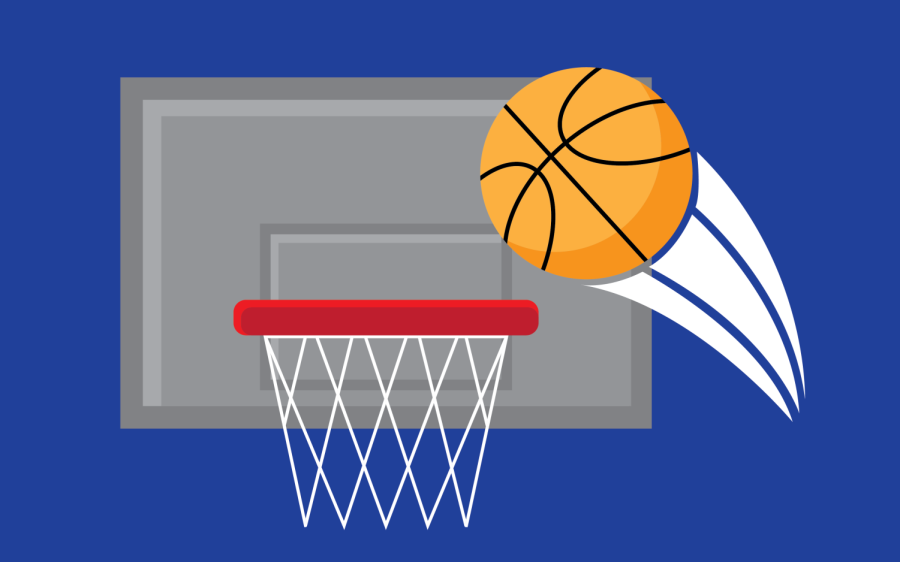
![Josh Gibson Supplants Ty Cobb, Babe Ruth, as Baseball’s Best Hitter [OPINION]](https://seattlespectator.com/wp-content/uploads/2024/05/gettyimages-72075891-600x338.jpg)
